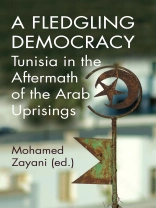In the tumultuous aftermath of the Arab uprisings, Tunisia charted a unique path that has earned it praise as ‘a beacon of hope’ in a troubled region. Since the 2011 revolution, it has embraced a new culture of democracy, based on pluralism, civilian rule and the peaceful transfer of power. Equally noteworthy are the country’s burgeoning civil society, its various institutional reforms and its progressive new constitution, which upholds individual freedoms and champions women’s rights.
But in spite of these achievements, daunting challenges remain. Although Tunisia has succeeded in defusing many crises, its transition has been uneasy; its democracy is fragile and its future continues to be uncertain. As the country emerges from decades of authoritarian rule, it faces enormous political, social, economic and security challenges, which are undermining its peaceful evolution. It is this state of fragility that A Fledgling Democracyseeks to capture.
Focusing on the socio-political dynamics that have unfolded in this North African nation since the revolution, the contributors to this volume shed light on how Tunisia has navigated its first decade of democratic transition, and reflect on what the ongoing changes and challenges mean for the country today.
Despre autor
Mohamed Zayani is a professor of critical theory at the School of Foreign Service, Georgetown University in Qatar
, and author of the award-winning book
Networked Publics and Digital Contention: The Politics of Everyday Life in Tunisia
.












